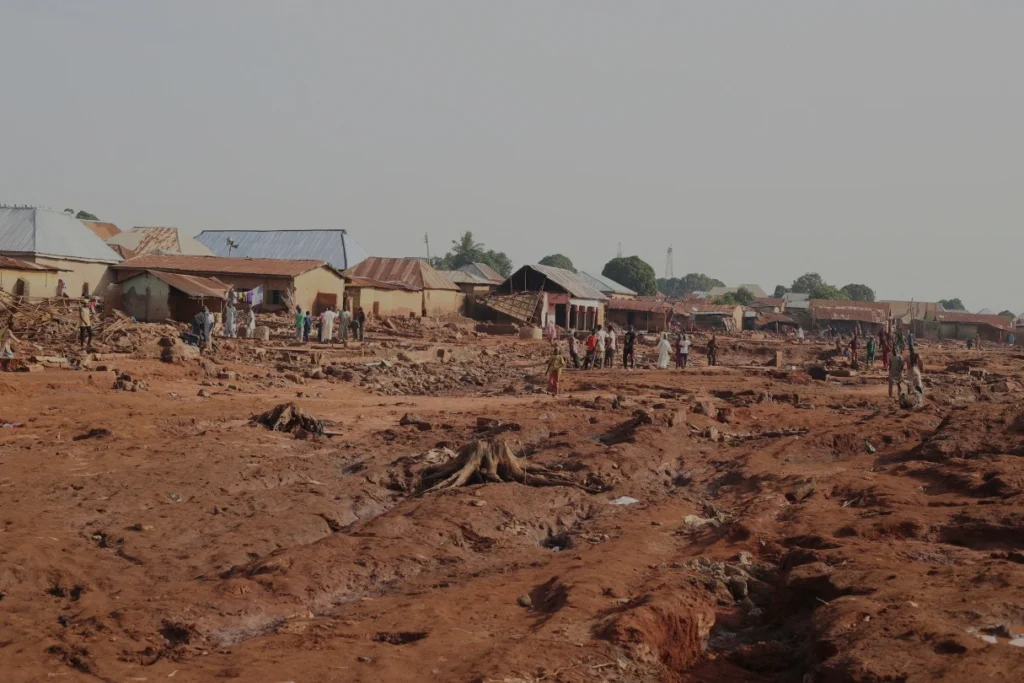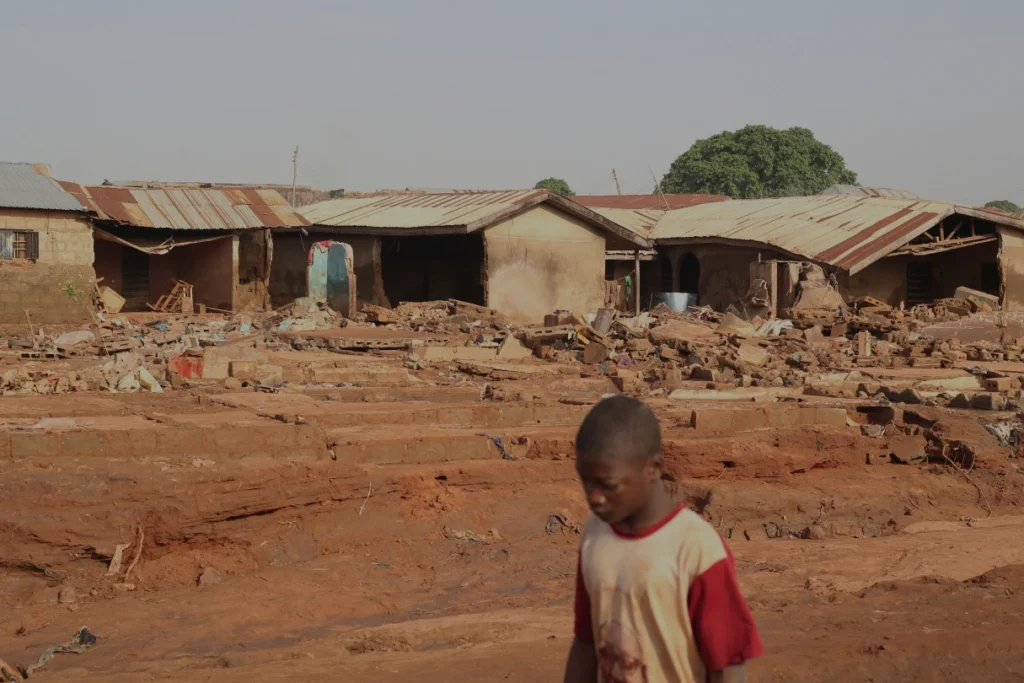MOKWA, Nigeria — The death toll from catastrophic flooding in the Nigerian town of Mokwa has risen to at least 200, local officials confirmed Sunday, as rescue operations were formally suspended due to the unlikelihood of finding more survivors.

The flood, triggered by intense predawn rainfall Thursday, engulfed large portions of Mokwa in Niger State, a major agricultural and commercial hub located roughly 380 kilometers (236 miles) west of Abuja. The torrential downpour overwhelmed drainage systems and caused water levels to surge in less than five hours, sweeping through homes and farmlands in three local communities.
Deputy Chairman of Mokwa Local Government Musa Kimboku told The Associated Press that officials have ceased rescue efforts. “There are no longer signs of life,” Kimboku said. “Our focus now is recovery and preventing disease outbreaks.”
Authorities have begun the grim task of exhuming bodies buried beneath mud and debris to prevent contamination of water sources and the spread of disease. Emergency response teams also reported extensive damage across the region, including the collapse of two bridges and the destruction of major roadways, further complicating relief and aid delivery.
On Saturday, Niger State emergency services spokesperson Ibrahim Audu Husseini said more than 3,000 people have been displaced and 11 others injured. The disaster has left at least 500 households devastated, with many homes completely submerged and rooftops barely visible above the floodwaters. Survivors waded waist-deep through muddy torrents in a desperate effort to salvage belongings and assist others.
President Bola Tinubu extended condolences Friday night and directed federal agencies to activate emergency support mechanisms. He promised an accelerated response to assist victims and rebuild affected areas.

Flooding is a recurring threat in Nigeria during the rainy season, but experts say the situation has grown increasingly dire due to climate change. The country’s northern regions, including Niger State, have experienced longer dry spells followed by bursts of extreme rainfall, creating conditions ripe for flash floods.
Mokwa, located near the banks of the River Niger, has historically been vulnerable to water-related disasters. However, local residents say the scale and swiftness of this flood were unprecedented. “We’ve never seen anything like this before,” community leader Aliki Musa said. “The water came so fast, we had no time to escape.”
Jibril Muregi, chairman of the Mokwa local government, told local news outlet Premium Times that the area has long required critical infrastructure upgrades. “Flood control measures are overdue. This tragedy could have been mitigated,” he said.
The suspension of rescue efforts marks a shift toward long-term recovery, but with thousands displaced and homes destroyed, officials face mounting pressure to provide shelter, prevent disease outbreaks, and prepare for the potential of future flooding as the rainy season continues.



